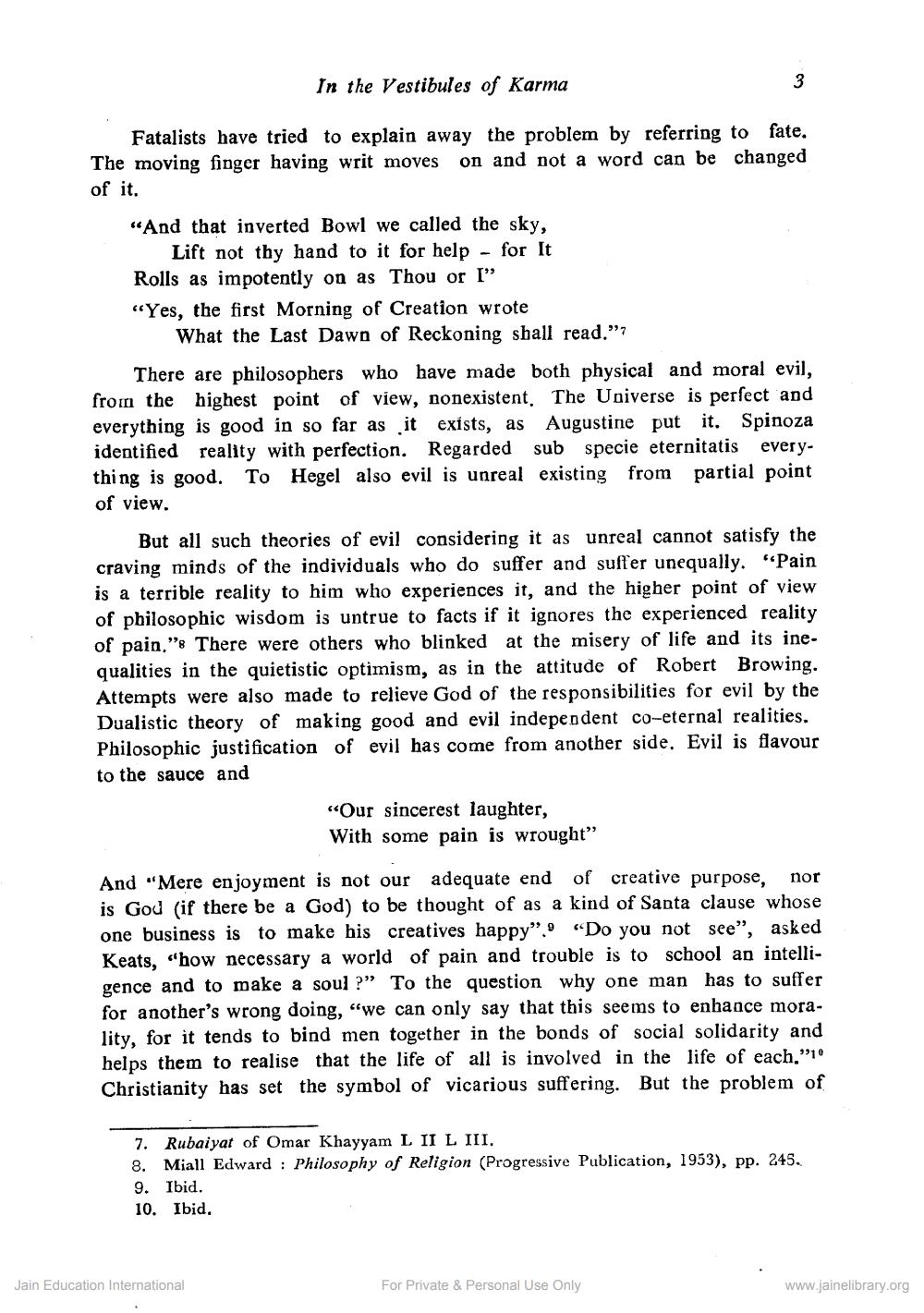Book Title: Karma and Rebirth Author(s): T G Kalghatgi Publisher: L D Indology Ahmedabad View full book textPage 8
________________ In the Vestibules of Karma Fatalists have tried to explain away the problem by referring to fate. The moving finger having writ moves on and not a word can be changed of it. “And that inverted Bowl we called the sky, Lift not thy hand to it for help - for It Rolls as impotently on as Thou or I” “Yes, the first Morning of Creation wrote What the Last Dawn of Reckoning shall read.” There are philosophers who have made both physical and moral evil, from the highest point of view, nonexistent. The Universe is perfect and everything is good in so far as it exists, as Augustine put it. Spinoza identified reality with perfection. Regarded sub specie eternitatis everything is good. To Hegel also evil is unreal existing from partial point of view. But all such theories of evil considering it as unreal cannot satisfy the craving minds of the individuals who do suffer and suffer unequally. "Pain is a terrible reality to him who experiences it, and the higher point of view of philosophic wisdom is untrue to facts if it ignores the experienced reality of pain.". There were others who blinked at the misery of life and its inequalities in the quietistic optimism, as in the attitude of Robert Browing. Attempts were also made to relieve God of the responsibilities for evil by the Dualistic theory of making good and evil independent co-eternal realities. Philosophic justification of evil has come from another side. Evil is flavour to the sauce and “Our sincerest laughter, With some pain is wrought" And "Mere enjoyment is not our adequate end of creative purpose, nor is God (if there be a God) to be thought of as a kind of Santa clause whose one business is to make his creatives happy”. “Do you not see", asked Keats, "how necessary a world of pain and trouble is to school an intelligence and to make a soul ?” To the question why one man has to suffer for another's wrong doing, “we can only say that this seems to enhance morality, for it tends to bind men together in the bonds of social solidarity and helps them to realise that the life of all is involved in the life of each."1" Christianity has set the symbol of vicarious suffering. But the problem of 7. Rubaiyat of Omar Khayyam L II L III. 8. Miall Edward : Philosophy of Religion (Progressive Publication, 1953), pp. 245. 9. Ibid. 10. Ibid. Jain Education International For Private & Personal Use Only www.jainelibrary.orgPage Navigation
1 ... 6 7 8 9 10 11 12 13 14 15 16 17 18 19 20 21 22 23 24 25 26 27 28 29 30 31 32 33 34 35 36 37 38 39 40 41 42 43 44 45 46 47 48 49 50 51 52 53 54 55 56 57 58 59 60 61 62 63 64 65 66 67 68 69 70 71 72 73 74 75 76 77 78 79 80 81 82
